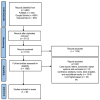Investigating the Impact of Nutrition and Oxidative Stress on Attention Deficit Hyperactivity Disorder
- PMID: 39339712
- PMCID: PMC11435085
- DOI: 10.3390/nu16183113
Investigating the Impact of Nutrition and Oxidative Stress on Attention Deficit Hyperactivity Disorder
Abstract
Background/Objectives: Attention deficit hyperactivity disorder (ADHD) is the most common childhood-onset neurodevelopmental disorder, characterized by difficulty maintaining attention, impulsivity, and hyperactivity. While the cause of this disorder is still unclear, recent studies have stated that heredity is important in the development of ADHD. This is linked to a few comorbidities, including depression, criminal behavior, and anxiety. Although genetic factors influence ADHD symptoms, there are also non-genetic factors, one of which is oxidative stress (OS), which plays a role in the pathogenesis and symptoms of ADHD. This review aims to explore the role of OS in ADHD and its connection to antioxidant enzyme levels, as well as the gut-brain axis (GBA), focusing on diet and its influence on ADHD symptoms, particularly in adults with comorbid conditions. Methods: The literature search included the main available databases (e.g., Science Direct, PubMed, and Google Scholar). Articles in the English language were taken into consideration and our screening was conducted based on several words such as "ADHD", "oxidative stress", "diet", "gut-brain axis", and "gut microbiota." The review focused on studies examining the link between oxidative stress and ADHD, the role of the gut-brain axis, and the potential impact of dietary interventions. Results: Oxidative stress plays a critical role in the development and manifestation of ADHD symptoms. Studies have shown that individuals with ADHD exhibit reduced levels of key antioxidant enzymes, including glutathione peroxidase (GPx), catalase (CAT), and superoxide dismutase (SOD), as well as a diminished total antioxidant status (TOS) compared to healthy controls. Additionally, there is evidence of a close bidirectional interaction between the nervous system and gut microbiota, mediated by the gut-brain axis. This relationship suggests that dietary interventions targeting gut health may influence ADHD symptoms and related comorbidities. Conclusions: Oxidative stress and the gut-brain axis are key factors in the pathogenesis of ADHD, particularly in adults with comorbid conditions. A better understanding of these mechanisms could lead to more targeted treatments, including dietary interventions, to mitigate ADHD symptoms. Further research is required to explore the therapeutic potential of modulating oxidative stress and gut microbiota in the management of ADHD.
Keywords: ADHD; diet; gut microbiota; gut–brain axis; oxidative stress.
Conflict of interest statement
The authors declare no conflicts of interest.
Figures
References
-
- Weibel S., Menard O., Ionita A., Boumendjel M., Cabelguen C., Kraemer C., Micoulaud-Franchi J.-A., Bioulac S., Perroud N., Sauvaget A., et al. Practical Considerations for the Evaluation and Management of Attention Deficit Hyperactivity Disorder (ADHD) in Adults. Encephale. 2020;46:30–40. doi: 10.1016/j.encep.2019.06.005. - DOI - PubMed
Publication types
MeSH terms
Substances
LinkOut - more resources
Full Text Sources
Medical
Miscellaneous



